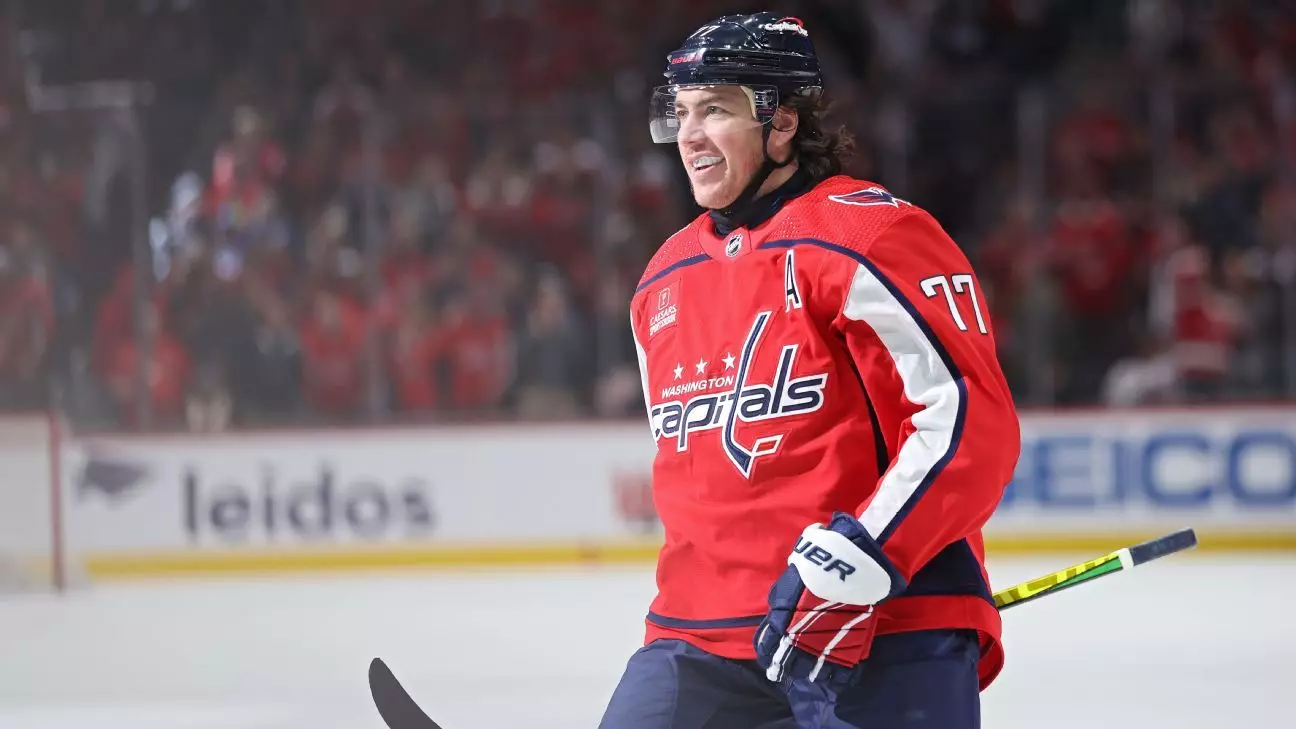The Washington Capitals recently announced a significant decision regarding forward T.J. Oshie, who will be placed on long-term injured reserve for the entirety of the 2024-25 NHL season due to persistent back problems. This announcement, made on the first day of the Capitals’ training camp, showcases the difficult balancing act between athlete ambition and medical realities. With the player’s health taking precedence, it is essential to unpack the implications of this decision not only on Oshie’s career but also on the team dynamics and their future prospects.
Oshie, now 37, has been grappling with chronic back issues that have intermittently sidelined him for the past several seasons. His situation reached a critical juncture when he and the Capitals acknowledged that the ongoing discomfort necessitated a break from regular play. In his own words, Oshie articulated the emotional weight of the decision, referencing the challenges faced by both himself and his family, as well as his teammates. The offseason presented him with a pivotal opportunity to look for long-term solutions to alleviate his injuries, though the outcome remains uncertain.
One cannot overlook the spiraling effect of injuries on athletic performance, particularly in a high-intensity sport like hockey. Last season, Oshie managed to play only 52 games, and his inability to reach at least 60 games has become a concerning trend since the 2019-20 season. Moreover, his declining numbers—totaling a mere 25 points last year—reflect not just his individual struggles but also the broader challenges the Capitals face as they embrace a youth-focused strategy. This raises the question: how do teams balance legacy players’ contributions against the urgent need for fresh talent?
Oshie’s experience with pain has been nothing short of debilitating, leading to a profound impact on his everyday life. In a striking admission, he described moments of such physical distress that he could only lie on the floor, a candid testament to how injuries can eclipse an athlete’s career and personal joy. The gravity of the situation echoes beyond the rink; Oshie expressed concern over being unable to engage in simple activities like lifting his children. Here lies a poignant reminder that athletes are multifaceted individuals whose struggles extend far beyond their athletic identities.
Support from the Capitals Organization
It is clear that Oshie’s health has become a top priority for the Capitals organization. General Manager Chris Patrick affirmed the franchise’s commitment to supporting Oshie through his healing process, recognizing his vital contributions as both a player and a leader. This backing signifies the team’s understanding that success is not solely measured by goals or assists but also by its players’ well-being. This rare level of organizational support invites other franchises within the sport to consider how they can better accommodate players facing health challenges.
Despite acknowledging the harsh reality of his condition, Oshie remains hopeful for a possible return in the future, stating his desire to play next year if he can ensure a pain-free experience. His statement encapsulates the duality of an athlete’s mindset: the drive to recover and compete clashes with the sobering realities of physical limitations. The stark observation he made while reflecting on the Capitals’ postseason elimination—lingering on the ice—amplifies the complex emotions surrounding potential retirement, as these moments may soon become cherished memories rather than future opportunities.
As Oshie contemplates the next steps of his career, he stands at a crossroads that many athletes face—balancing the desire to continue playing against the backdrop of physical limitations. With one year remaining on his contract, which carries a cap hit of $5.75 million, financial considerations inevitably complicate matters. Will he be able to return to a level that justifies the team’s investment, or will the injury ultimately steer him toward retirement, a fate he has yet to publicly accept?
T.J. Oshie’s journey epitomizes the challenges facing modern athletes when chronic injuries undermine their careers. The Capitals’ decision to place him on long-term injured reserve not only signifies a commitment to his health but also illuminates the need for open conversations surrounding player welfare in professional sports. As Oshie navigates this challenging chapter of his life, fans and the larger hockey community will remain hopeful for his recovery and eventual return to the ice, signifying a profound blend of athlete resilience and the harsh realities of physical limitations.

